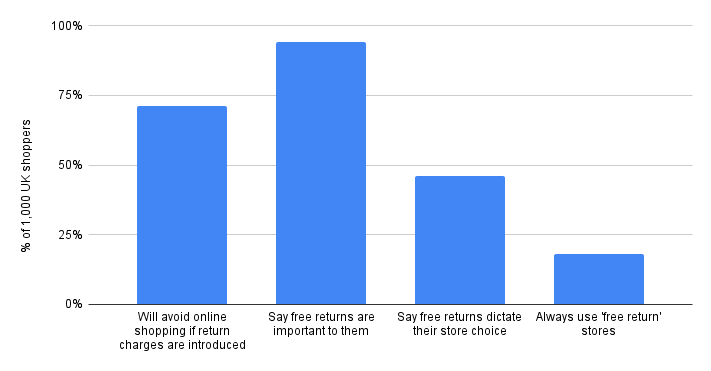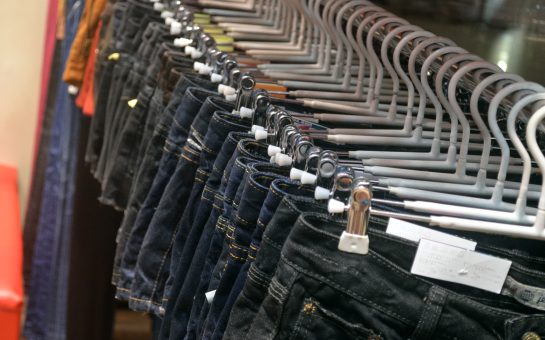Asos and other leading retailers are tightening their return policies and penalising serial returners.
Yet, new research from the Retail Technology Show found that a third of UK shoppers say serial returners are the most loyal consumers with 32% stating those who return the most are often spending the most.
A further 31% said that retailers shouldn’t ban serial returners if they keep part of their order.
A survey of 1,000 UK shoppers revealed that millennials are returning an average of 20% of their items per order, while Gen Z is returning an average of 22%. With the average shopper sending 15% of their order back to the store, the statistics imply that the majority of consumers are in the habit of returning.

Wanda Thibodeaux addresses the psychology behind shoppers who habitually return items for Inc and discover it is their desire for a hit of dopamine that drives the purchase, similar to a shopping addiction.
Wardrobing is becoming a damaging trend in the eyes of retailers with a significant proportion of shoppers admitting to purchasing online clothes to take social media photos or wear on a one-off occasion before returning.
This growing trend is known as ‘haul culture’ which 31% of Brits have identified when Tiktok and Instagram influence bulk buy clothing items to present a haul for their viewers with little intention of keeping all the items.
Research by Appino found that 71% of UK shoppers would avoid online shopping if the store introduced return fees.
Out of the 1,000 surveyed, 57% of men admitted their concerns about possible return fees compared with 51% of female shoppers.

Asos blames the unethical trend of buyers’ remorse for the dent in online profits with the company witnessing a 4% growth drop in the UK to £431.1 million last summer just as return rates increased.
Many retailers are now fighting against serial returners with 26% of consumers believing it is the retailers who should take responsibility for preventing returns from being made.
Despite most sellers offering an appealing free returns policy, Zara has introduced a charge of £1.95 per return, encouraging buyers to be more ruthless in making their fashion selections.
Asos has introduced a ‘blacklist’ of serial returners in order to tackle the issue of abusing the returns policy, with Harrods taking a similar procedure.
Sephora and Amazon are tackling the issue by penalising shoppers who are known to the retailers as making too many returns by banning them from making any future purchases.
However, Retail Technology Show’s research shows that only 6% of shoppers have been banned from making a purchase from certain brands, and 15% were Gen Z consumers.
Wardrobing is an indulgence that has significant consequences in a world stricken by the ever-growing threats of climate change with an estimated £23 million returned items being sent to a landfill site each year, generating 750,000 tonnes of CO₂ emissions.
Now that most retailers are offering the ‘buy now, pay later’ alternative, it is becoming a financial gamble for fraudulent returners if retailers are less likely to accept their returns.




